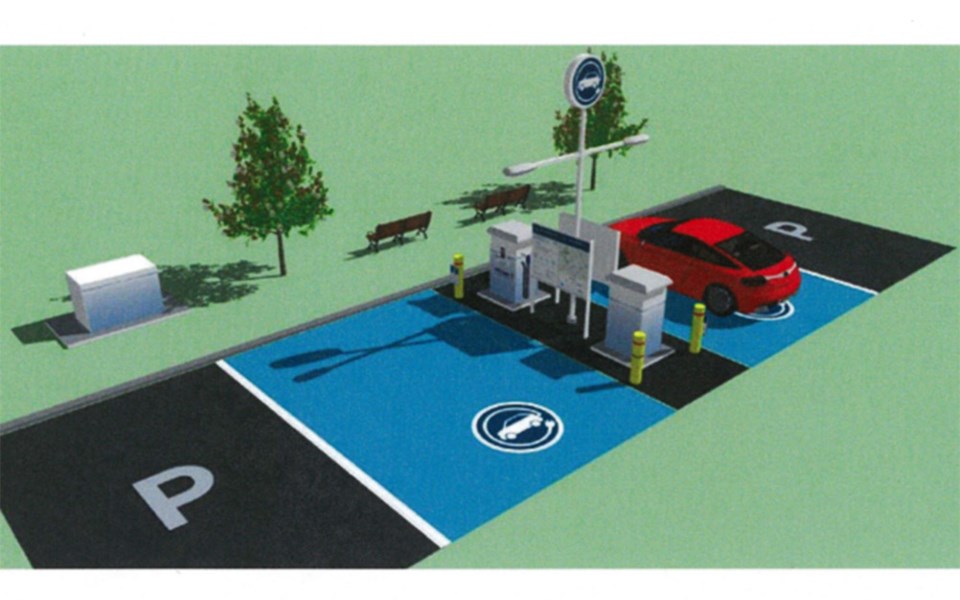More fast charging stations will be available for electric vehicle owners at a Delta facility and perhaps others.
The most common type of charging stations are 240-volt, Level 2 stations, which can provide a full charge in four-to-six hours.
DC Fast Charge stations, also referred to as Level 3 charging stations, use a higher power charge which allows electric vehicles to be fully charged in just 30-to-40 minutes. Most electric vehicles can use those stations.
The approximate cost to install a DC Fast Charge station is $150,000, a Delta staff report notes.
The city currently owns and operates 30 Level 2 charging stations at civic facilities, but no Level 3 fast charge stations.
In 2019, BC Hydro installed a DC Fast Charge station at the South Delta Recreation Centre to fill a gap in their provincial network of fast charging stations.
Available for public use with a fee, it’s the only fast charge station at a Delta facility but not part of the city’s network.
That station can charge one vehicle at a time and has been well used since it was installed, according to the report.
Having secured funding, BC Hydro is looking to further expand its network of public fast charging stations and identified the South Delta Recreation Centre site as an ideal location.
At its July 25 meeting, Delta council agreed with a recommendation to amend a current licence agreement with BC Hydro to use additional parking stalls at the recreation centre to install and operate three additional fast charge stations.
BC Hydro and Delta staff have also had preliminary discussions about installing additional DC Fast Charge stations in North Delta. They are also looking at the possibility of securing funding under Natural Resources Canada's Zero Emission Vehicle Infrastructure Program to have those stations in all three communities.



